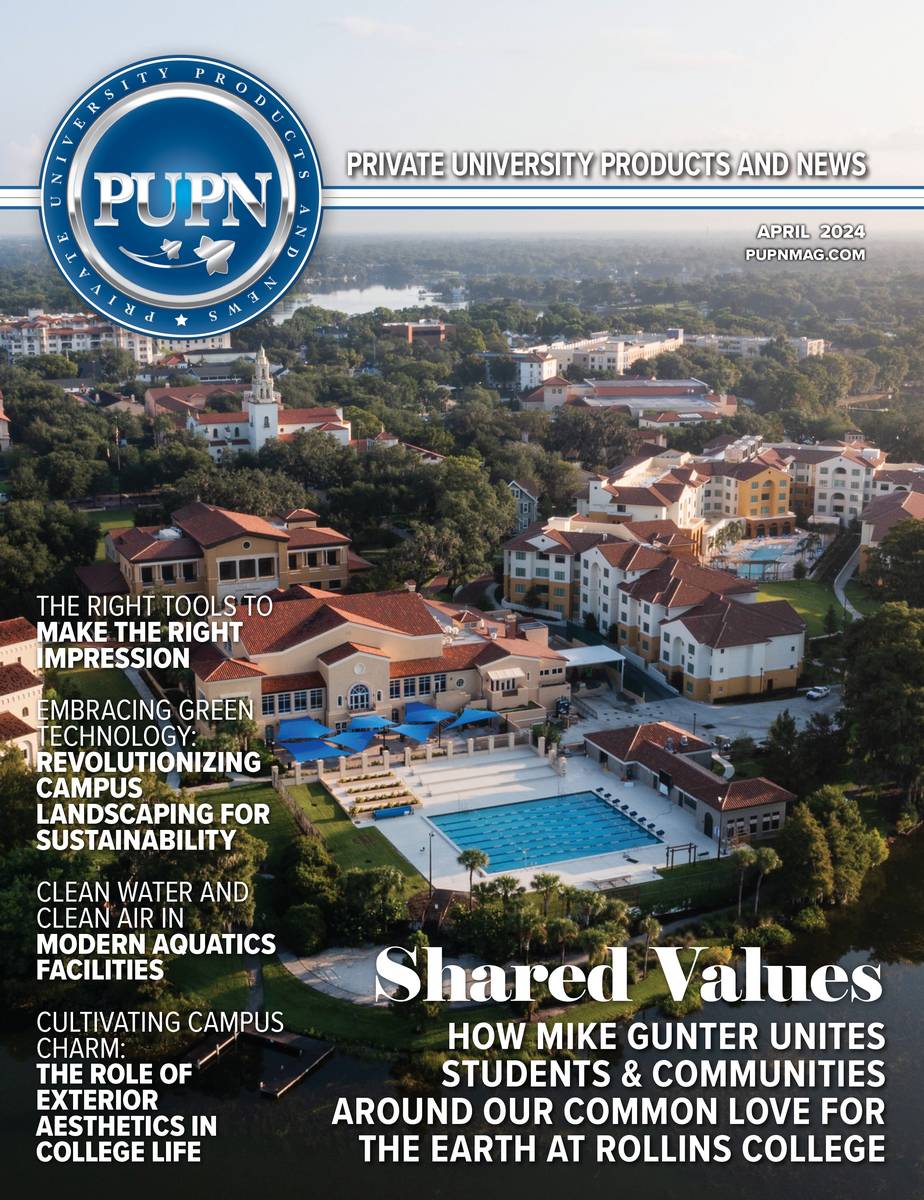A few weeks ago, Joe Rutten was in the first days of facing a huge shift in higher education and the larger world, as we all were. He was working diligently to find a way to somehow “finish” a course remotely in a program that wasn’t designed to remove human element from the equation.
Connecting the Pieces
Growing increasingly concerned about a system that sometimes grows too focused on training students to download, regurgitate, and disseminate information, Joe Rutten hopes leaders in higher education will take time to reflect on what brought us to become part of these learning institutions. Especially as we all do our best to work remotely, he hopes we can all be reminded of the original missions set by the finest universities in the nation set for themselves, upon their founding.
“Education is a human endeavor,” Rutten explains, a process that involves the head, body, mind, and heart. In our turning to successful businesses and corporations for the answers to effective “management” and “leadership,” something crucial was removed from the equation.
Businesses are, often, focused primarily on maximizing profit, reducing waste (even if that “waste” is in the form of salaries), and maximizing efficiency.
A “compartmentalized” education is just not what we need. Because he was trained in seminary and ended up teaching high school, he wonders if his background is part of the reason he remains so focused on helping students understand how it “all works together.”
He wants students, and their teachers, to start putting the disciplines together, so what they learn in Theology is intertwined with what they learn in Biology or Math or Psychology.
This impulse is what prompted the two general education courses all Mount Marty students take first; the courses are a platform from which students will build the rest of their education.
A Value System Rooted in Humanity
At Mount Marty, the mission of the Benedictine Leadership Institute (BLI) is to develop leaders across the disciplines who will serve the common good, leaders who will practice ethical decision-making in whatever careers they embark on after graduation. They provide students the tools to solidify a sense of self, place, and purpose-all within a value system rooted in the sacredness of God’s creation and the sacredness of humanity.
Rutten wants students to be curious-and to apply that curiosity to all of their courses. He’s hoping they recognize during the educational process that they are not a “cog in a wheel,” but a mind, heart, and body in pursuit of what is true and what is real.
As they explore truth and wisdom, which are the most often stated mission statements of private colleges and universities, he hopes Mount Marty students will “dream about what is possible.”
Catching Contagious Joy
Jason Heron, a member of the Theology faculty at Mount Marty, describes Rutten this way: “Joe lives for truth, goodness, and beauty. And he is skilled at inviting others to join him in living this way. This makes him a fantastic teacher and a great friend. It’s an adventure working with him.”
Student Rose Kinyon notes Rutten’s profound impact on her education, sharing how he constantly inspires her in all facets of her own life, while demonstrating his commitment to pursue a relationship with Christ above all else.
Saying Rutten is “not afraid to answer the call to greatness,” Kinyon explains that he “instills a desire for virtue” in his students. She adds that she often pops by his office, because his open-door commitment to students is sincere- and sometimes she just needs to “catch some of his contagious joy.”
First-year student Joe Lund adds that Rutten’s energy is unlike anything he’s ever seen: “He is known to stand on tables and chairs as he teaches the lesson for the day. His positive attitude and unmatched energy are what make me look forward to going to his class each day.”
Choosing Which Wolf to Feed
One of the core beliefs of the BLI program is that now, more than ever, our world needs leaders who can make difficult, but ethical, decisions in an ever-changing environment. The BLI works to develop critical thinkers and problem-solvers who will step confidently into their lives beyond college, leading with both their minds and their hearts. They will understand how we must work to make a difference in others’ lives, not just our own.
Because the BLI, and the Mount Marty community, see every student as destined to serve the world, transform lives, improve organizations, and heal communities, their curriculum is designed to help young people find their place in the world, through a thoughtful and reflective journey intended to start with the individual self and work out from there.
We are often faced with a path, where we must make a choice, he explains: Path of Wisdom or Vanity, Path of Consciousness or Unconsciousness, Path of Virtue or Evil. He references the two-wolves analogy to help students understand that the battle between good and evil is in each of us, and the wolf that wins (inside us) is the wolf we choose to feed.
Rutten is worried that students could be left wandering life aimlessly, trying to determine who they are, which means an absence of joy, understanding, patience, and kindness. Each person must decide what they want-either we enlighten ourselves or we lose ourselves.
Faith and Reason should not be disconnected in the educational process, he observes, so Rutten seeks ways to break down walls between disciplines and help students understand how the disciplines connect-how one is part of what makes up the whole, whether that’s a discipline within an educational system, or an individual within a social system.
Chasing Rabbits
In academic studies intertwined with experiential learning, students figuratively and literally explore life’s peaks and valleys. Past years have brought students from the Grand Canyon and the Rocky Mountains, participating in retreats with scholars and community leaders.
In the first year, students focus on one question: “Who am I?” In their sophomore year, students focus on an extension of self, asking, “Who am I in community?” By junior year, students are ready to examine their role in providing service beyond their families and the campus; they are asked to consider, “Who am I in professional life?” In their senior capstone project, students are presented with a final question, a difficult question-to be sure-but a crucial one: “Who am I in the world?”
As part of this intense exploration, Rutten has them “chasing rabbits” when reading, going into the texts like holes to explore. When they come out, they are expected to offer insight and a way to apply that insight to improve their lives, both personally and professionally.
They are taught to discern meaning–to what they read, what experiences they have, what they hear–and then find purpose from those musings: purpose about themselves as individuals and the purpose for humanity.
Because students aren’t being trained like cogs in the machine, the messaging is about far more than maximizing profit and perfecting time management for an organization. Rutten notes, “It’s about how we live that matters.”
Students need mentors for this step, he stresses. They cannot just read information in a text; they must experience the integration of that knowledge in their lives, to “follow well and learn to live a good life.”
Learning about ethics, communication, principles, values, and human dignity-those may not be mentioned in a leadership text to run a corporation, so the question becomes this: “What tools are required for us to live well?”
My Education as a Human Being
The answer results in a curriculum that could be summed up, perhaps, in “My Education as A Human Being.” Students absorb all the knowledge they need to do well in their fields, regardless of discipline, while learning the cardinal virtues and habits of living well, where happiness isn’t a feeling, but an “arrival.”
Because of this fuller, richer, deeper education their students receive, Rutten knows if he needs a nurse, he would hope to find one who was a Mount Marty graduate. If he needs an accountant, he would look for a Mount Marty graduate.
Though loyalty to his students and his college might be a factor, his choice to seek a Mount Marty graduate in either a corporate or medical world would be about more than just loyalty:
Rutten can be confident those graduates are not just living lives of business, but lives of purpose. He can be certain they are approaching their jobs with a strong set of values, compassion for other people, and a deep appreciation for human dignity.










